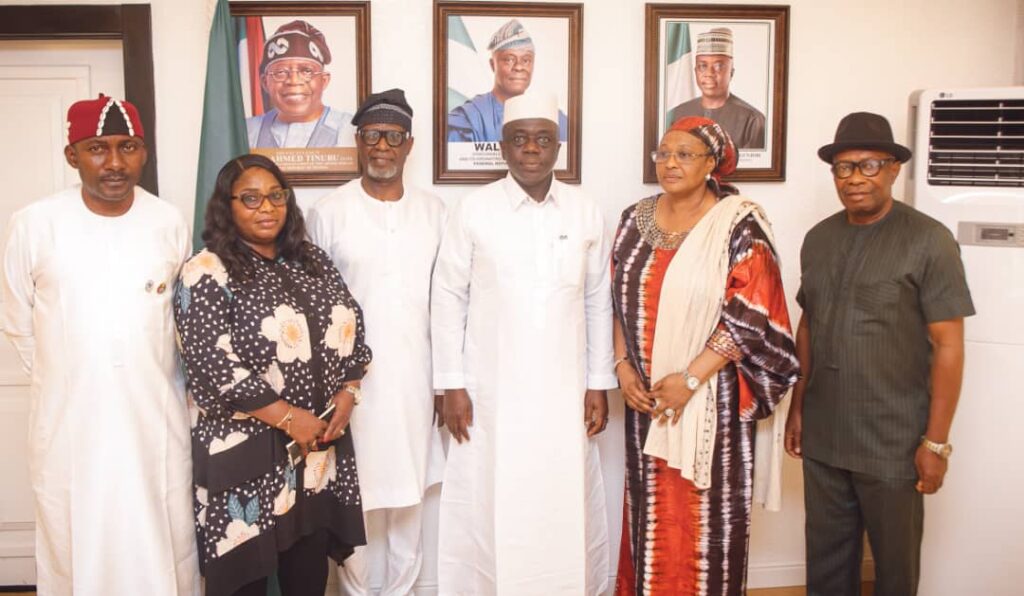By Abdul Lauya
As part of ongoing efforts to reposition the Nigerian Legion for enhanced welfare of military veterans and families of fallen heroes, the Chairman, National Council of the Nigerian Legion (NCNL), Veteran Grace Morenike Henry, has sought the institutional backing of the Office of the Accountant General of the Federation (OAGF).
During a courtesy visit, Vet. Henry met with the Accountant General of the Federation, Shamsudeen Babatunde Ogunjimi, at his Abuja office.
The visit was aimed at fostering institutional collaboration and ensuring the Nigerian Legion is no longer left to depend solely on public donations raised during the annual Emblem Appeal Launch.
For decades, the Nigerian Legion, a statutory body responsible for the welfare of retired personnel of the Nigerian Armed Forces and dependents of deceased veterans, has operated largely on symbolic donations, primarily from the Emblem Appeal campaign that marks the Armed Forces Remembrance Day from December through January 15.
This funding model has been described by stakeholders as unsustainable, given the Legion’s critical mandate in a country grappling with post-service military welfare challenges.
Vet. Henry, who has in recent months embarked on strategic engagements with key government institutions, emphasized the urgent need for a dedicated budgetary provision for the Legion to meet its obligations effectively.
According to her, the Nigerian Legion cannot continue to rely on goodwill and donations to fulfill a statutory duty.
“As a government organization set up by an Act of parliament, the Nigerian Legion deserves structured support within the national budget framework”, she added.
In response, AGF Ogunjimi acknowledged the historical significance of the Nigerian Legion and assured the Chairman of his commitment to working with relevant government arms to explore viable budgetary interventions.
He noted that the welfare of retired service members and the families of those who paid the supreme price must be treated as a national priority, not a seasonal gesture.
While the courtesy visit was largely ceremonial, it underscores a growing recognition within government circles of the need to institutionalize support for the Legion beyond token gestures.
Vet. Henry’s advocacy reflects a shift from passive ceremonial roles to active policy engagement, a departure from the status quo that may well redefine the future of military veterans’ welfare in Nigeria.
If successful, this push could lay the groundwork for a dedicated budget line for the Nigerian Legion in subsequent national budgets, signaling a policy shift from donation-dependent welfare to sustainable institutional support.
The meeting ended with a mutual understanding to establish a collaborative framework that will align the Legion’s objectives with national fiscal planning mechanisms.


